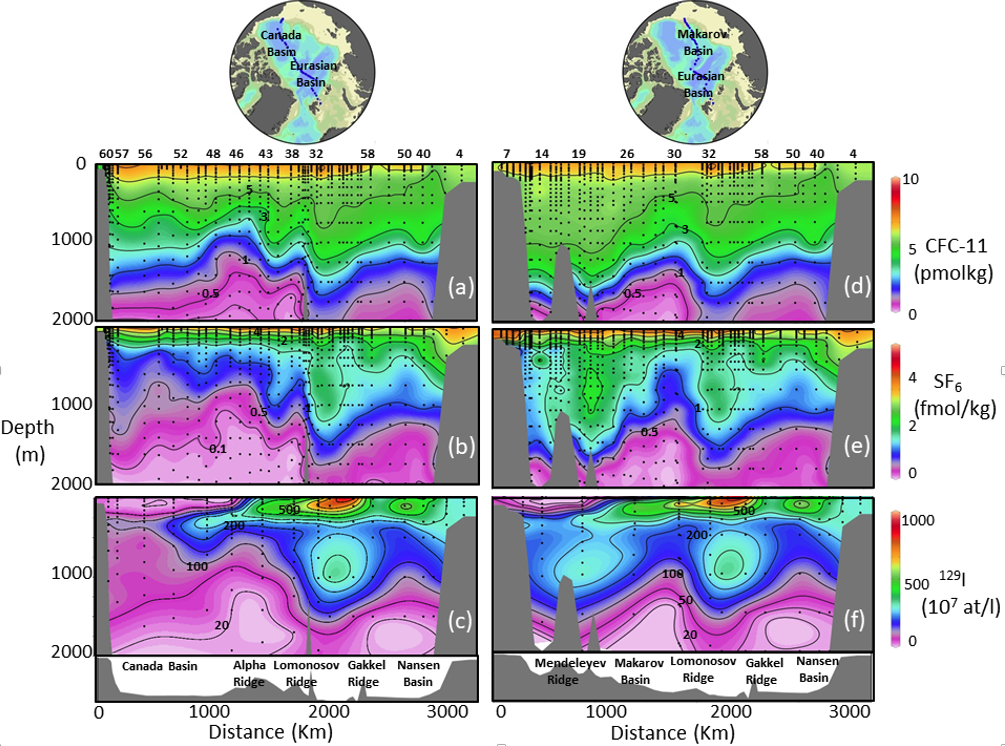Transient tracers, water mass ages and mixing time scales in the Arctic Ocean
Smith and colleagues determined iodine-129 (129I), chlorofluorocarbons (CFC-11) and sulfur hexafluoride (SF6), in the Arctic Ocean in samples collected during two U.S. and one German GEOTRACES cruises that occurred in 2015 (cruises GN01 and GN04). The resulting large, quasi-synoptic tracer data sets provide an opportunity to use these transient tracers to determine water mass mean ages and mixing rates in a highly stratified, arctic, marine system. Their calculated mean age sections are conform to historical ideas of tracer ages while the mixing time is nearly constant in upper intermediate water, which reflects the influence of strong advective flow. The high mixing values found in the upper halocline are congruent with the nutrient maximum indicating that both are governed by winter shelf mixing processes.

Reference:
Smith, J. N., Smethie Jr., W. M., & Casacuberta, N. (2022). Synoptic 129 I and CFC–SF 6 Transit Time Distribution (TTD) Sections Across the Central Arctic Ocean From the 2015 GEOTRACES Cruises. Journal of Geophysical Research: Oceans, 127(9). Access the paper: 10.1029/2021jc018120
